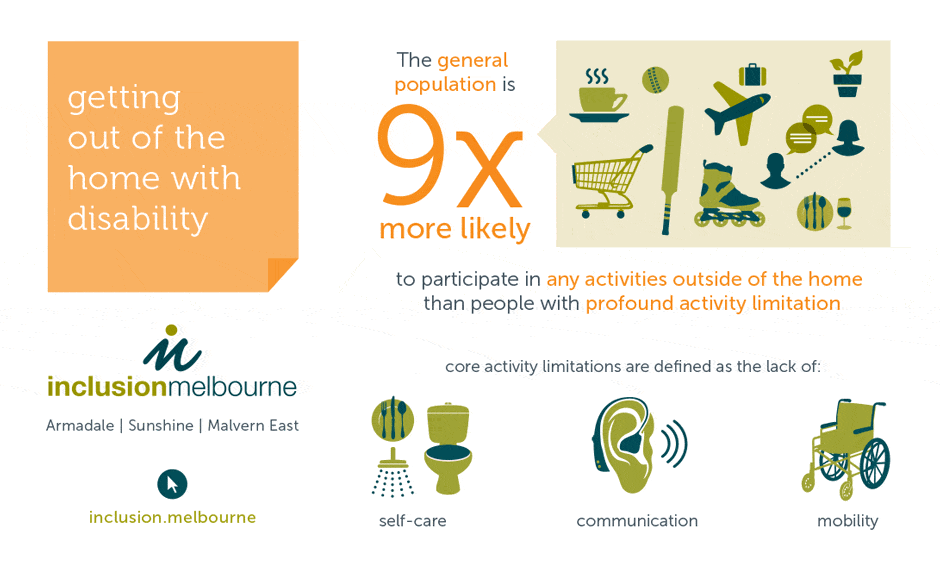Getting out of the home with a disability
The inclusion into community experienced by people with disability often takes years to develop, and although this inclusion can be fragile, it has the power to provide life meaning and security. The Australian Government’s 2009 ‘Shut Out Report’ argues that for people with a disability, it should not require such extraordinary effort to live an ordinary life.
Olivia, a 34 year old woman, had been living at home supported by her mother. In 2014, when Olivia’s mother suddenly passed away, Olivia was relocated in order for her needs for ongoing support to be met. Olivia had lived, worked and developed meaningful relationships in the community where she had spent her whole life, and unfortunately she was moved to a distant suburb where she knew no one, and had no sense of community, safety or inclusion.
Because of the suddenness of the move, together with the loss of her mother and her connections in the community, Olivia experienced both physical and emotional instability, social isolation, mental health issues, and the loss of the skills she had developed in her previous workplace.
People with profound activity limitations are 9 times less likely to participate in activities outside of their home, in comparison to the general population. The suddenness of Olivia’s relocation together with the loss of community support she had built up, means that being able to participate readily in her new environment might not be a simple matter.
The ‘Shut Out Report’ describes the situation as one where people with disabilities are often present in the community, but are not enjoying full participation, and are instead feeling discriminated against and excluded.
The discrimination and exclusion may be occurring in ways that are not considered, for example, lack of access for wheelchairs in playgrounds, cinemas, restaurants, hotels and cafes, or exclusion from exercise facilities and sporting communities. In Australia, local communities, clubs and associations are crucial foundations to ensure inclusion of people with disability into the community.
Olivia’s story is a reminder that we cannot underestimate the power of inclusion to change lives for the better – that inclusion has the power to provide life, meaning and security.



